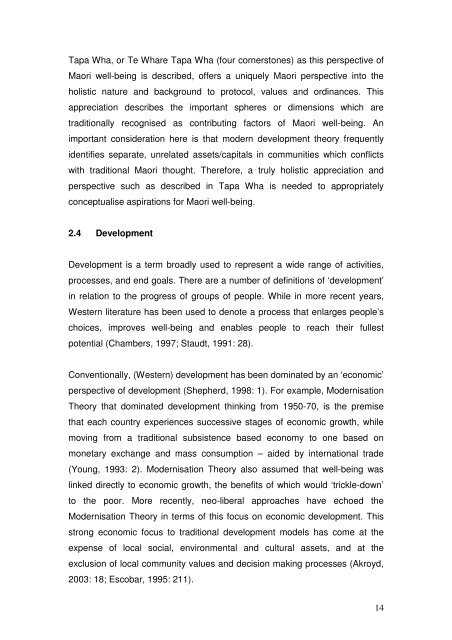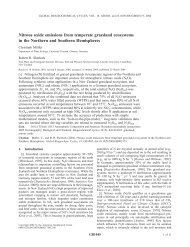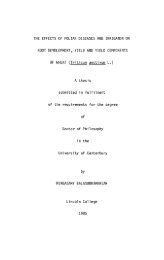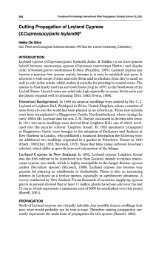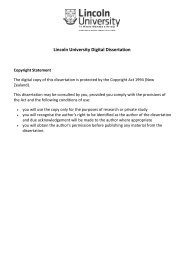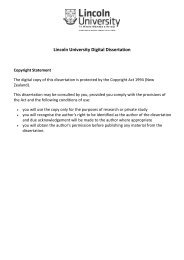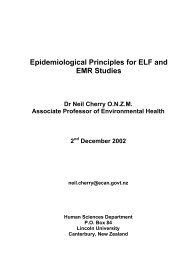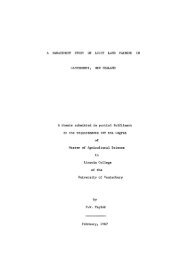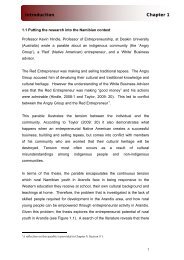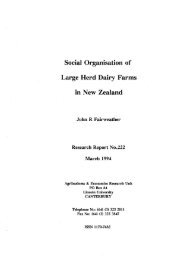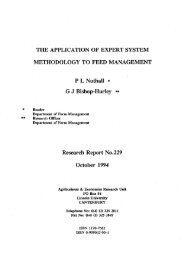Lincoln University Digital Dissertation - Lincoln University Research ...
Lincoln University Digital Dissertation - Lincoln University Research ...
Lincoln University Digital Dissertation - Lincoln University Research ...
You also want an ePaper? Increase the reach of your titles
YUMPU automatically turns print PDFs into web optimized ePapers that Google loves.
Tapa Wha, or Te Whare Tapa Wha (four cornerstones) as this perspective of<br />
Maori well-being is described, offers a uniquely Maori perspective into the<br />
holistic nature and background to protocol, values and ordinances. This<br />
appreciation describes the important spheres or dimensions which are<br />
traditionally recognised as contributing factors of Maori well-being. An<br />
important consideration here is that modern development theory frequently<br />
identifies separate, unrelated assets/capitals in communities which conflicts<br />
with traditional Maori thought. Therefore, a truly holistic appreciation and<br />
perspective such as described in Tapa Wha is needed to appropriately<br />
conceptualise aspirations for Maori well-being.<br />
2.4 Development<br />
Development is a term broadly used to represent a wide range of activities,<br />
processes, and end goals. There are a number of definitions of ‘development’<br />
in relation to the progress of groups of people. While in more recent years,<br />
Western literature has been used to denote a process that enlarges people’s<br />
choices, improves well-being and enables people to reach their fullest<br />
potential (Chambers, 1997; Staudt, 1991: 28).<br />
Conventionally, (Western) development has been dominated by an ‘economic’<br />
perspective of development (Shepherd, 1998: 1). For example, Modernisation<br />
Theory that dominated development thinking from 1950-70, is the premise<br />
that each country experiences successive stages of economic growth, while<br />
moving from a traditional subsistence based economy to one based on<br />
monetary exchange and mass consumption – aided by international trade<br />
(Young, 1993: 2). Modernisation Theory also assumed that well-being was<br />
linked directly to economic growth, the benefits of which would ‘trickle-down’<br />
to the poor. More recently, neo-liberal approaches have echoed the<br />
Modernisation Theory in terms of this focus on economic development. This<br />
strong economic focus to traditional development models has come at the<br />
expense of local social, environmental and cultural assets, and at the<br />
exclusion of local community values and decision making processes (Akroyd,<br />
2003: 18; Escobar, 1995: 211).<br />
14


